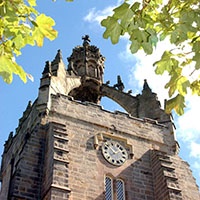
Professor Matteo Spagnolo
Honorary Professor
- About
-
- School/Department
- School of Geosciences
- Publications
-
Page 1 of 1 Results 1 to 1 of 1
Volcanoes stunt nearby glaciers
Nature Communications, vol. 16, 8099Contributions to Journals: Articles
